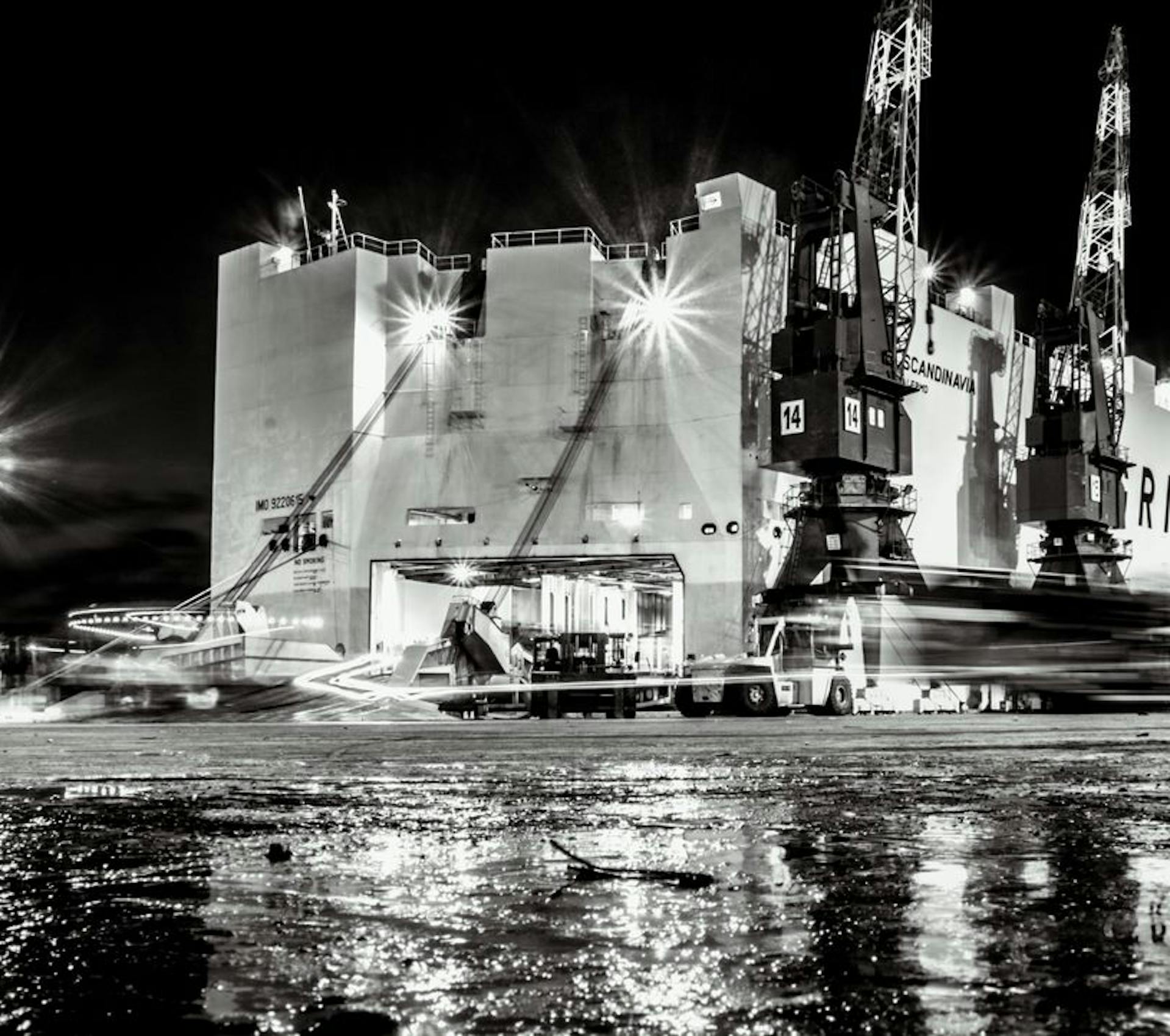
On its own Axle instead of on a Crane Hook
December 21, 2020
/
Logistics, Project Logistics, Ocean Freight, Mobility
The Project
The state railroad company Israel Railways Ltd (ISR) had signed a contract with the rail vehicle manufacturer Siemens Mobility for the delivery of 60 Desiro HC commuter train units. Production was to take place in Germany.
The total order value is around EUR 900 million. The conclusion of the contract marked the first call-off of 24 trains, six of them in a four-car configuration and 18 in a six-car configuration. The contract also includes the maintenance of these vehicles over a period of 15 years.
The Job
All the rail vehicles were produced in Germany as planned. For the safe and reliable export to Israel, Siemens Mobility asked nearly 20 international project forwarders to pitch, including the DREWES Group.
The shipment was to take place from Germany (port of departure: Hamburg) to Israel (port of destination: Ashdod). The 24 trains consisted of a total of 132 power cars and wagons with a total weight of 6,355.8 metric tons and a volume of 44,675 cubic meters.
The individual wagons weighed between 44 and 56 tons with a length of 26 meters, a width of 2.82 meters and a height of up to 4.64 meters. All these were impressive dimensions!
The Challenge
Siemens Mobility originally designed the Desiro HC trains for the domestic German or continental European market - and not for use overseas, let alone for transportation there. Nevertheless, Israel Railways decided to buy the trains because of their good references with previous operators.
Design without Lifting Points
However, Siemens did not equip the Desiro HC with suitable lifting points for safe handling by crane. The design for safe transport of the valuable trains to avoid damage to the structure during loading was correspondingly complex.
The Implementation
DREWES Logistics convinced Siemens Mobility with a continuous RoRo shipment. This avoided complex and unsafe handling situations with heavy duty cranes. DREWES Logistics developed a unique, customized solution: With the help of special ramps, the trains could be transferred to 60-foot roll trailers with their own rail system for continuous “rolling” loading.
It also works without a Crane
Siemens Mobility initially arranged for the trains to be transferred on their own axles from Krefeld to Hamburg on the Deutsche Bahn AG rail network. Once here, the trains were taken over at Unikai (RoRo terminal O'Swaldkai) by the experts of the DREWES Group.
Loading took place directly from the tracks onto the 60-foot roll trailers with rail equipment. The transfer was carried out with the help of a winch of the tug master, followed by careful load securing. For the “rolling” shipment, the ConRo ships of the shipping company ACL were used in batches of ten to twelve wagons, initially as far as Antwerp.
Here, the cargo lots were transferred to RoRo vessels of Grimaldi Lines Euromed Service. The transit time from Antwerp to Ashdod was less than two weeks. At the port of destination, the cargo was unloaded and cleared through customs without any problems.
Finally, DREWES Logistics' partner Fridenson Logistic Services made sure that the wagons were transferred from the roll trailer back to the “real” rail of Israel Railways.
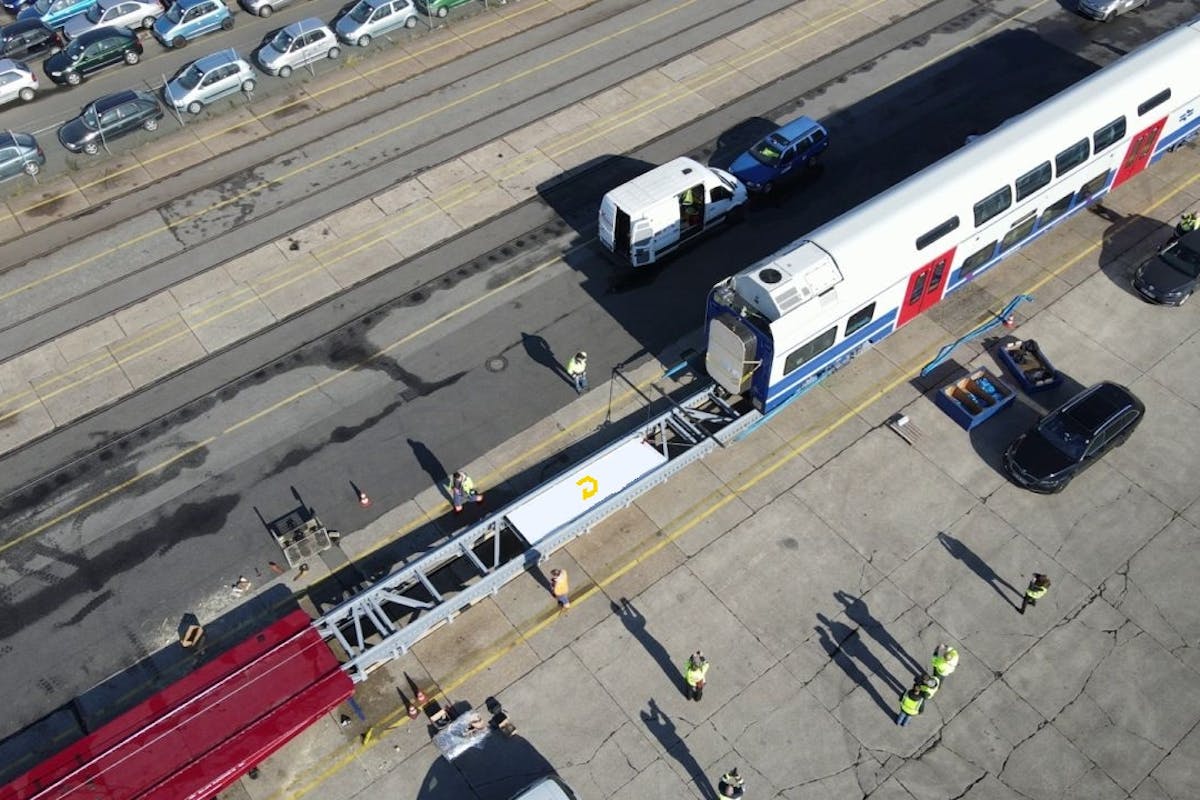
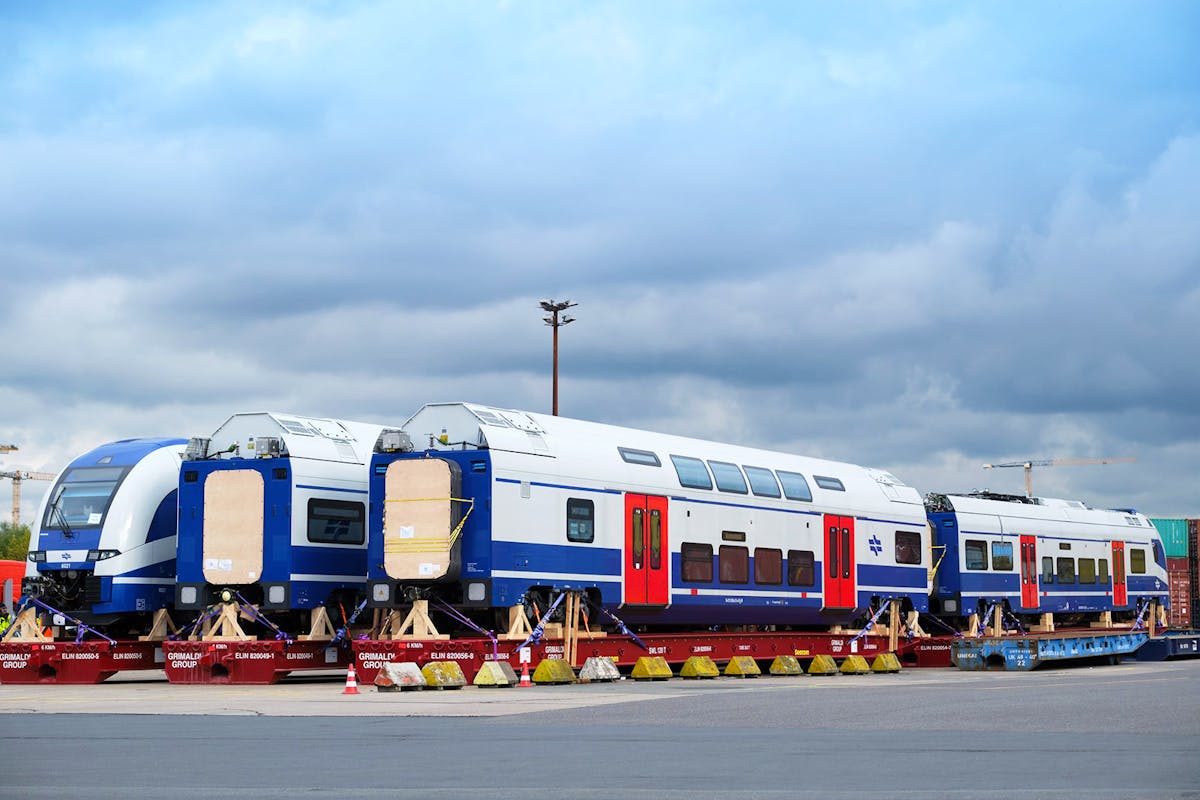
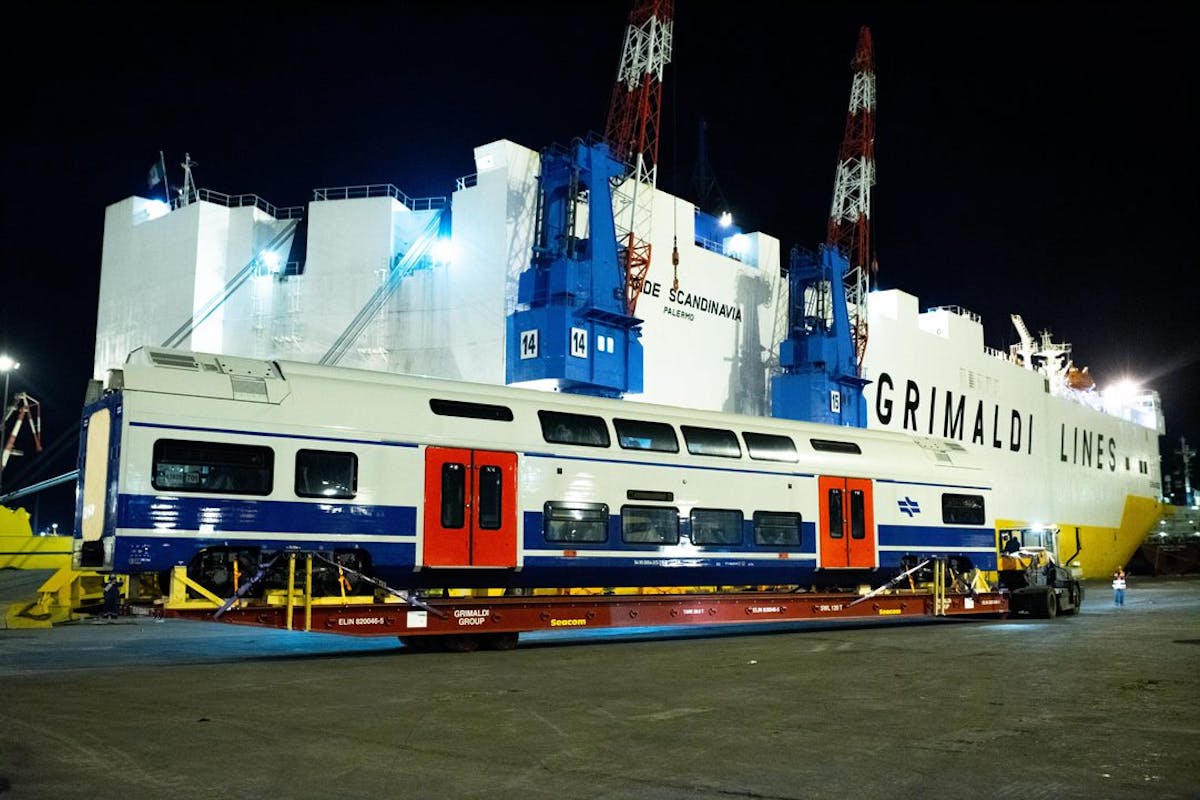
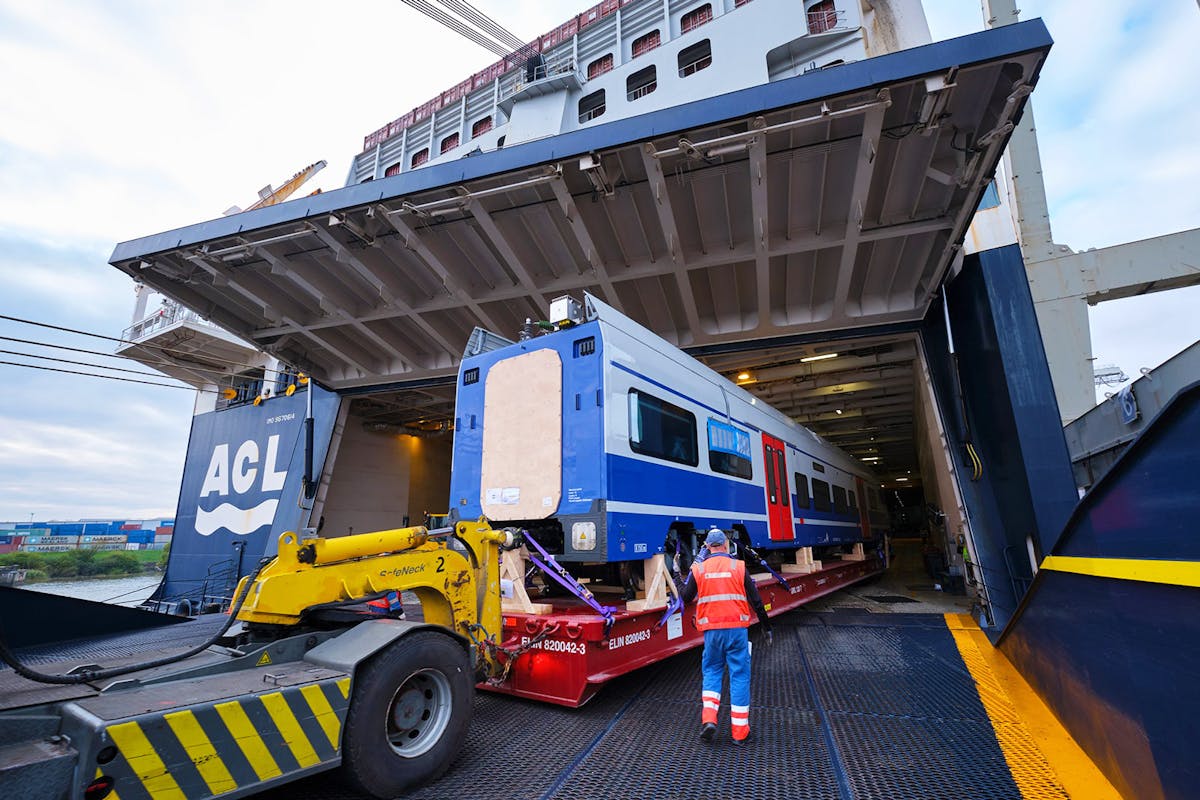
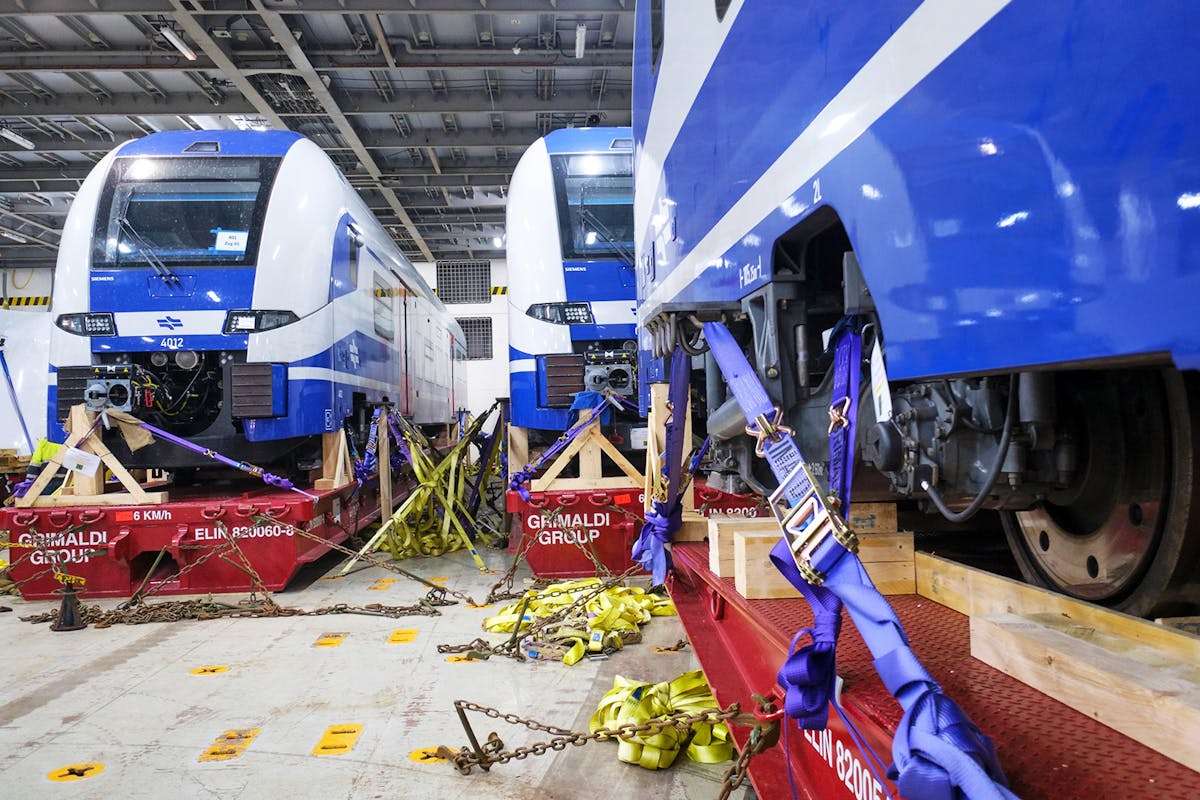
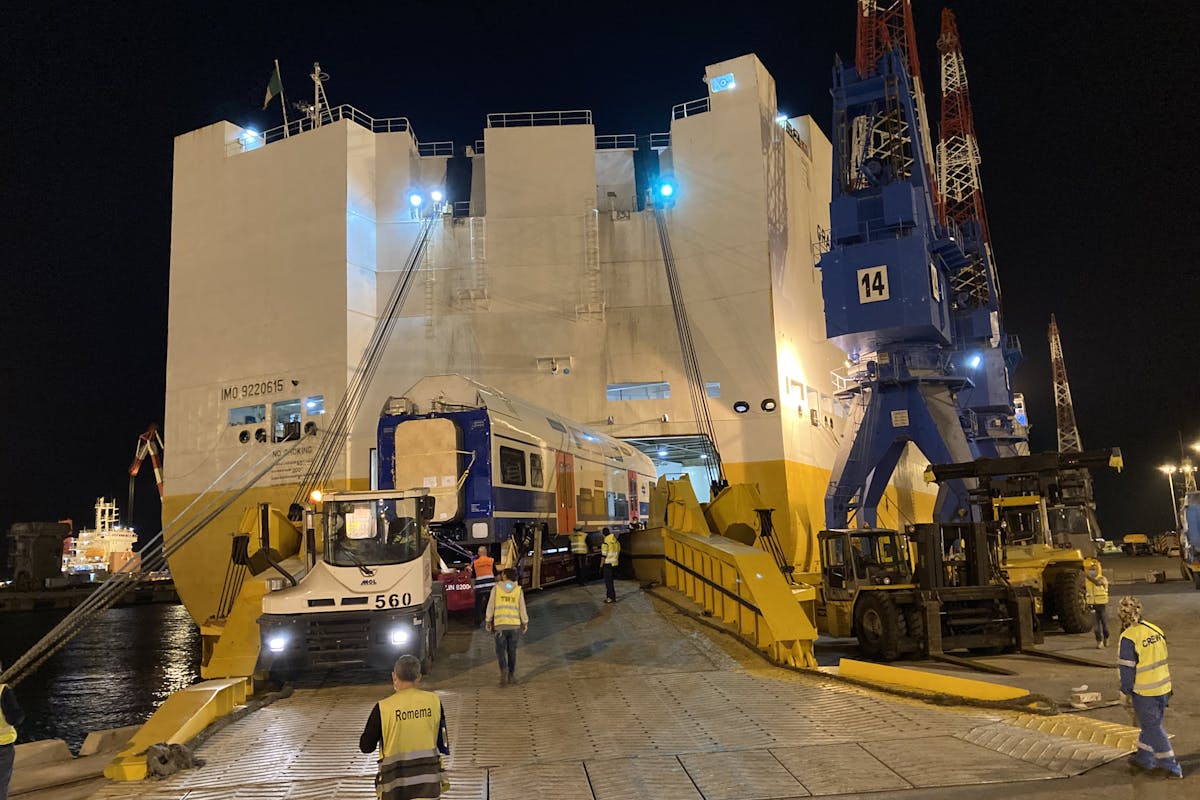
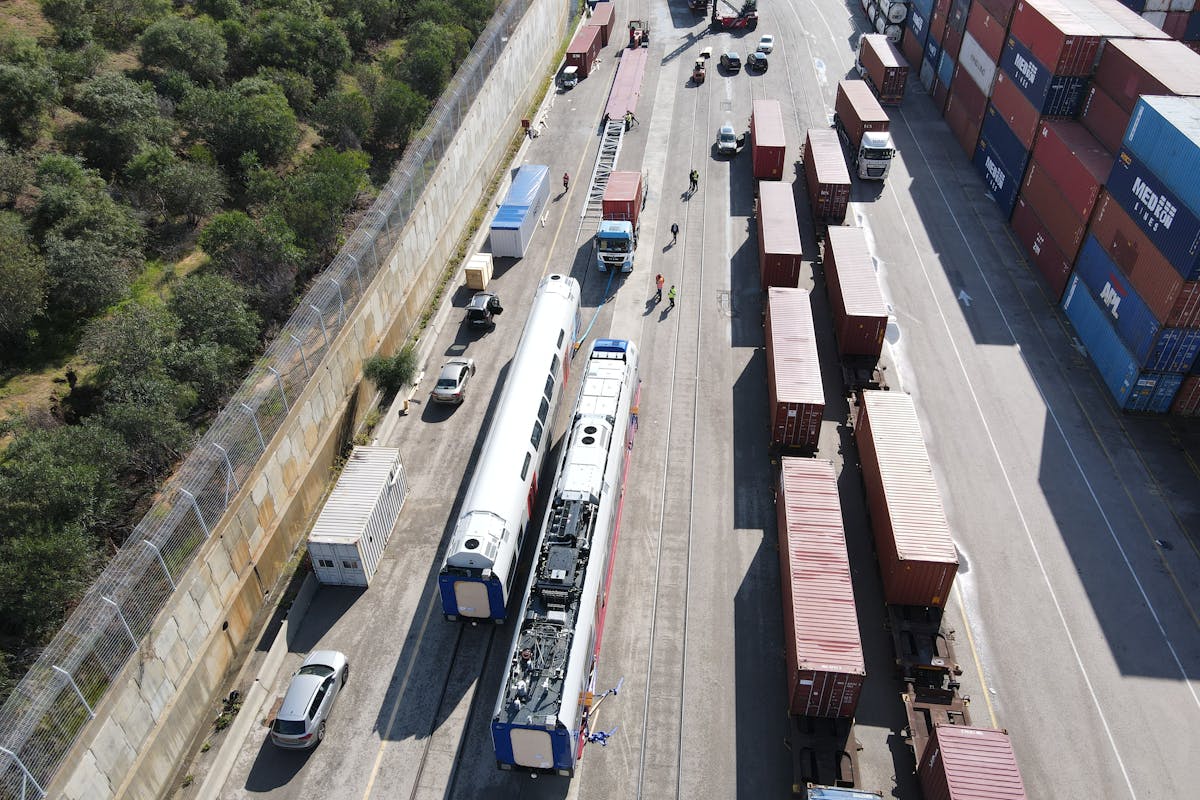
The Bottom Line
The concept carefully worked out by DREWES Logistics for the safe shipment of the valuable trains was a complete success. From door to door the wagons never had to leave the safe track, a complicated and damaging lifting, for which two cranes would have been needed, could be avoided.
All Health, Safety, Environment and Quality (HSEQ) standards and delivery reliability were met.
The successful shipment of this first delivery lot ensured that the DREWES Group was also commissioned by Siemens Mobility to ship the remaining trains from the total order to Israel.